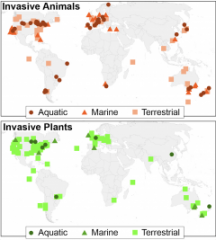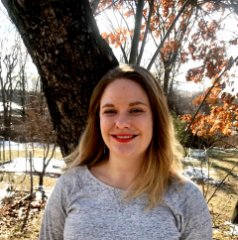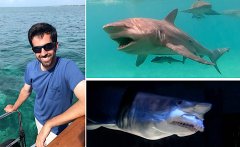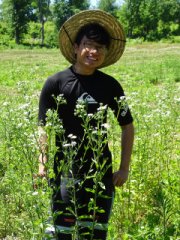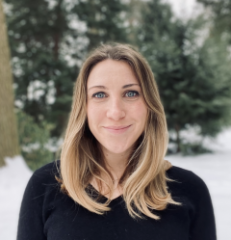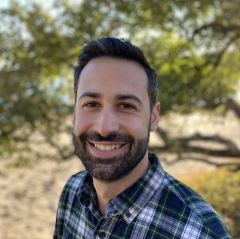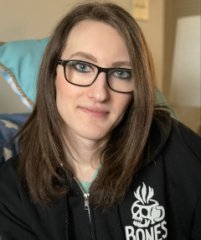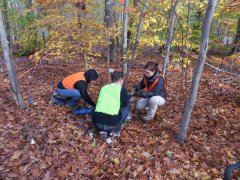News & Announcements
Bethany Bradley and co-authors win the Mercer Award!
Bethany Bradley and co-authors win the Mercer Award!
Bethany Bradley was the lead author on a paper published in the Proceedings of the National Academy of Sciences USA, Disentangling the abundance–impact relationship for invasive species, which won this year's George Mercer Award from ESA. This award recognizes an outstanding, recently published, ecological research paper. OEB's Brit Laginhas was also an author on this paper. Congratulations!!
We are pleased to announce the following OEB PhD thesis defense
We are pleased to announce the following OEB PhD thesis defense
Abby Vander Linden
Wednesday, April 28, 2021
2:00 PM (EST)
Remote
Thesis Title: FUNCTIONAL MORPHOLOGY, BIOMECHANICS, AND EVOLUTION OF RUMINANT MAMMALS.
We are pleased to announce the following OEB PhD thesis defense
We are pleased to announce the following OEB PhD thesis defense
Joshua K. Moyer
Tuesday, April 27, 2021
10:00 AM
Remote
Thesis Title: INVESTIGATIONS OF THE FORM AND FUNCTION OF FEEDING BY MODERN NEOSELACHIANS
Seanne Clemente Awarded the National Garden Club of America Centennial Pollinator Fellowship
Seanne Clemente Awarded the National Garden Club of America Centennial Pollinator Fellowship
Seanne Clemente has been awarded the National Garden Club of America Centennial Pollinator Fellowship for his research to study self-medication in bumble bees and the use of potentially medicinal floral volatiles from basil plants.
Eve Beaury to receive the 2021 Ecological Society of America’s Katherine S. McCarter Graduate Student Policy Award
Eve Beaury to receive the 2021 Ecological Society of America’s Katherine S. McCarter Graduate Student Policy Award
Eve Beaury (PhD candidate) is one of 22 students nationwide to receive the 2021 Ecological Society of America’s Katherine S. McCarter Graduate Student Policy Award. This award provides graduate students with the opportunity to receive policy and communication training, including learning about the federal legislative process and science funding, hearing from ecologists working in federal agencies, and meeting with their Members of Congress on Capitol Hill.
Dr. Aaron Grade Selected as Finalist for a AAAS Science and Technology Policy Fellowship
Dr. Aaron Grade Selected as Finalist for a AAAS Science and Technology Policy Fellowship
OEB alumnus Dr. Aaron Grade was selected to be a finalist for a AAAS Science and Technology Policy Fellowship. These nationally competitive fellowships provide opportunities for scholars to learn first-hand about federal policy making and to apply their expertise to addressing societal challenges. Aaron is currently a postdoc at Clark University. Once matched with a federal agency in April, he will begin his fellowship position in September 2021. Congratulations, Aaron!
Katie Schroeder's Latest Findings about Zebra Finch Nestlings
Katie Schroeder's Latest Findings about Zebra Finch Nestlings
OEB student, Katie Schroeder's latest findings have been published in Developmental Neurobiology showing that zebra finch nestlings have auditory neurons that can already process and store songs like adults. Katie is a member of the Healey Lab at UMass Amherst
UMass Amherst Life Sciences Junior Fellows Seminar with Dr. Jeffrey Karp
UMass Amherst Life Sciences Junior Fellows Seminar with Dr. Jeffrey Karp
The Junior Fellows program has invited Dr. Jeffrey Karp to give a talk on Thursday, November 12, 2020.
Title: Towards Accelerated Medical Innovation.
Time: 5-6PM
To register to attend, please click HERE
Michelle C Gilbert wins FASEB’s 2020 BioArt competition!
Michelle C Gilbert wins FASEB’s 2020 BioArt competition!
PhD candidate, Michelle C Gilbert, has won the Federation of American Societies for Experimental Biology's BioArt competition for a photograph of a skeletal preparation of the cichlid fish, Cauqetia spectabilis. All winning entries can be found here. This is the second consecutive year that Michelle has earned this award!
UMass Amherst's Blanchard Lab Leads National Soil Microbiome Investigation
UMass Amherst's Blanchard Lab Leads National Soil Microbiome Investigation
In a new national effort, UMass Amherst scientists led by Jeff Blanchard, biology, have received a two-year, renewable resource grant from the Department of Energy (DOE) to apply – for the first time – new genomics and omics-related techniques to microbial communities at 15 to 20 established NSF research sites across the United States, Hawaii and Puerto Rico.
The new soil data will be integrated with older soil sample data to assess how these communities are responding over time to climate change and their role in respiring carbon dioxide from soil, which is the major repository of terrestrial carbon, Blanchard says. Read more
